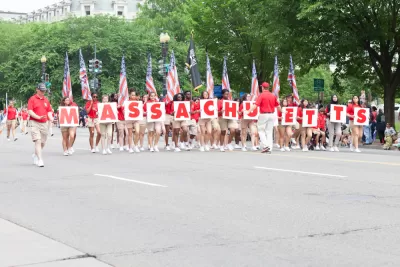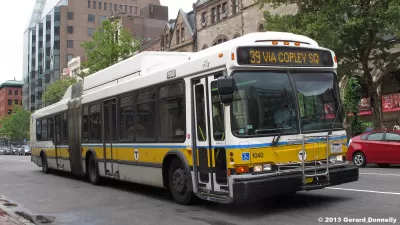A few blue-collar cities proximate to Boston offer case studies of the "opportunity bargains" identified in the 2018 Opportunity Atlas published by Harvard and Brown universities an the U.S. Census.

"Not long ago, a team of economists at Harvard University, Brown University, and the US Census Bureau published an extraordinary study of opportunity in America," writes David Scharfenberg. "And they were able to show with remarkable and often heartbreaking precision that where we grow up — down to the specific neighborhood — can have a profound influence on our prospects for moving up the economic ladder and grabbing a piece of the American Dream."
The study [pdf], "Opportunity Atlas: Mapping the Childhood Roots of Social Mobility," also revealed a surprising success story: the cities of Chelsea, Revere, Everett, and Malden, all just north of Boston on the other side of the Mystic River. Scharfenberg describes these "blue-collar cities" collectively, as "an unlikely engine of upward mobility in a land of greasy spoons and auto body shops and modest two-family homes with chain-link fences."
The study identifies these kinds of place, where relatively affordable neighborhoods can alter the course of low-income children's lives, as "opportunity bargains." Massachusetts does not claim sole possession of such opportunities bargains. There are similar opportunity bargains in Rhode Island, North Dakota, Nebraska, and California, for example. Scharfenberg says there are thousands of opportunity bargains in the country.
The article includes a discussion of the unproven theories about what makes opportunity bargains work, as well as interactive maps to illustrate the Opportunity Atlas's finding in New England.
FULL STORY: Miracle on the Mystic: Chelsea, Everett, and the New American Dream

Maui's Vacation Rental Debate Turns Ugly
Verbal attacks, misinformation campaigns and fistfights plague a high-stakes debate to convert thousands of vacation rentals into long-term housing.

Planetizen Federal Action Tracker
A weekly monitor of how Trump’s orders and actions are impacting planners and planning in America.

In Urban Planning, AI Prompting Could be the New Design Thinking
Creativity has long been key to great urban design. What if we see AI as our new creative partner?

Florida Seniors Face Rising Homelessness Risk
High housing costs are pushing more seniors, many of them on a fixed income, into homelessness.

Massachusetts Budget Helps Close MBTA Budget Gap
The budget signed by Gov. Maura Healey includes $470 million in MBTA funding for the next fiscal year.

Milwaukee Launches Vision Zero Plan
Seven years after the city signed its Complete Streets Policy, the city is doubling down on its efforts to eliminate traffic deaths.
Urban Design for Planners 1: Software Tools
This six-course series explores essential urban design concepts using open source software and equips planners with the tools they need to participate fully in the urban design process.
Planning for Universal Design
Learn the tools for implementing Universal Design in planning regulations.
Gallatin County Department of Planning & Community Development
Heyer Gruel & Associates PA
JM Goldson LLC
City of Camden Redevelopment Agency
City of Astoria
Transportation Research & Education Center (TREC) at Portland State University
Jefferson Parish Government
Camden Redevelopment Agency
City of Claremont





























